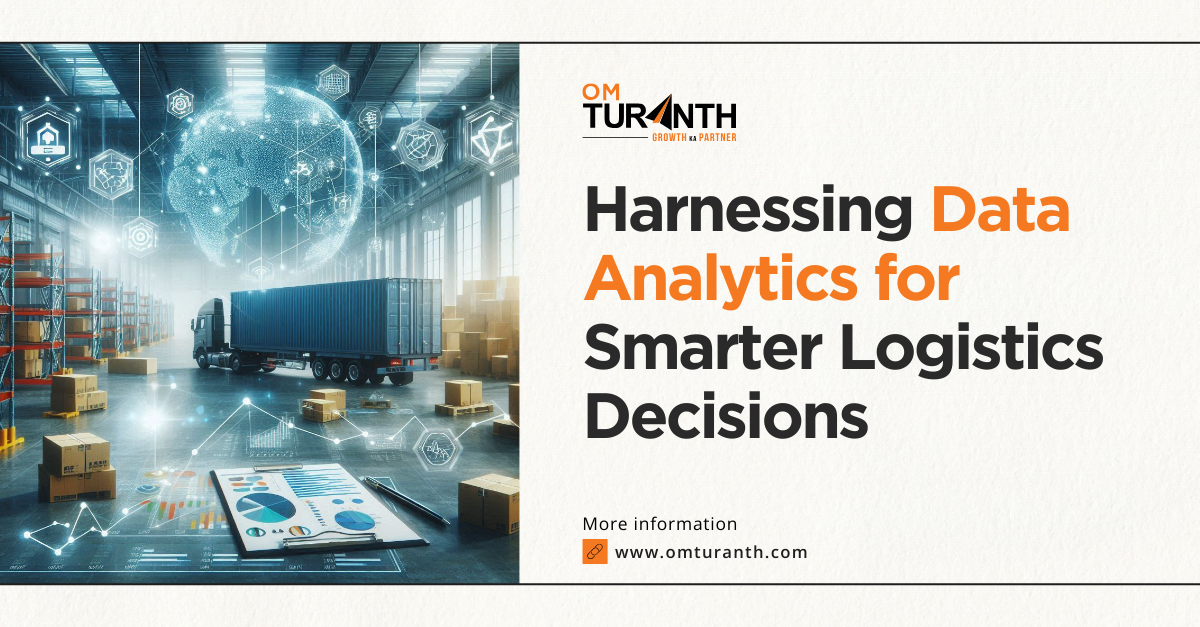Harnessing Data Analytics for Better Logistics Decisions

In today's fast-paced logistics landscape, the integration of data analytics has become paramount for businesses seeking to maintain a competitive edge. Data analytics empowers companies to transform raw data into actionable insights, enabling smarter logistics decisions that enhance efficiency, drive down costs, and elevate customer satisfaction. Let’s explore the transformative potential of data analytics in logistics operations.
The Value of Data in Logistics
Data is often referred to as the "new oil" in modern business. In logistics, it can fuel innovation and streamline operations. Here's how leveraging data analytics creates value:
- Improved Visibility: Utilizing advanced data analytics tools provides end-to-end visibility across the supply chain. Businesses can track shipments in real-time, monitor performance metrics, and respond quickly to potential disruptions. This visibility is essential for mastering customer relationships.
- Informed Decision-Making: Access to comprehensive data analysis allows logistics managers to make informed decisions based on trends and patterns rather than gut feelings. This leads to better planning, resource allocation, and risk management, which are critical for navigating seasonal demands.
- Dynamic Pricing Strategies: By analyzing market trends, customer preferences, and historical data, logistics companies can implement dynamic pricing strategies. This not only maximizes profitability but also ensures competitive pricing for customers, supporting the need for timely deliveries.
Key Applications of Data Analytics
The application of data analytics in logistics is diverse and impactful. Here are some key areas where it makes a significant difference:
- Inventory Management: Effective data analysis helps businesses optimize inventory levels, reducing carrying costs while ensuring products are readily available. By leveraging demand forecasting, companies can align their inventory with market needs, as highlighted in logistics solutions for industrial equipment.
- Supply Chain Optimization: Analyzing data across the supply chain can identify bottlenecks and inefficiencies. Companies can implement solutions that enhance the flow of goods, leading to faster deliveries and lower operational costs. Addressing top logistics challenges can greatly benefit from such optimizations.
- Customer Insights: Understanding customer behavior through data analytics allows logistics providers to tailor their services. By analyzing feedback and preferences, businesses can create personalized experiences that foster customer loyalty, which is essential for the role of customer service in logistics.
- Risk Mitigation: Data analytics enables companies to anticipate potential risks, such as supply chain disruptions caused by natural disasters or geopolitical issues. Proactive measures can be taken to minimize impacts on operations, aligning with the need to choose the right logistics partner for your business.
Future Trends in Data Analytics for Logistics
As technology continues to evolve, the future of data analytics in logistics looks promising. Emerging trends include:
- Artificial Intelligence (AI): The integration of AI with data analytics can automate processes, enhance predictive capabilities, and facilitate smarter decision-making. This ties into how AI and machine learning are revolutionizing supply chain management.
- IoT and Big Data: The Internet of Things (IoT) generates vast amounts of data from connected devices. Analyzing this big data will provide deeper insights into logistics operations and customer preferences, which is pivotal for optimizing last-mile delivery.
- Blockchain Technology: Incorporating blockchain can enhance data integrity and transparency within the supply chain. It enables secure data sharing among stakeholders, which can improve collaboration and trust, reinforcing the principles of sustainable logistics.
Conclusion
Harnessing data analytics is no longer optional for logistics companies; it is essential for thriving in an increasingly competitive market. By enhancing visibility, improving decision-making, and leveraging customer insights, businesses can make smarter logistics decisions that lead to operational excellence and increased customer satisfaction. The future of logistics is data-driven—embrace it to stay ahead!